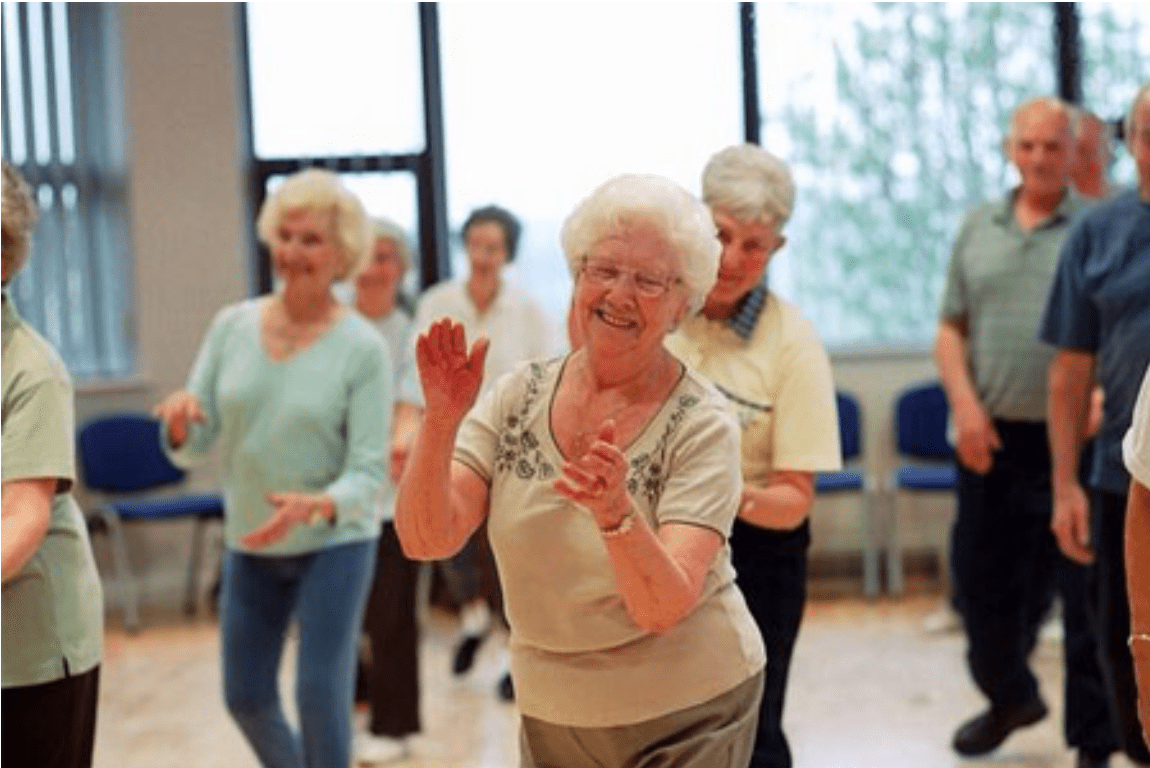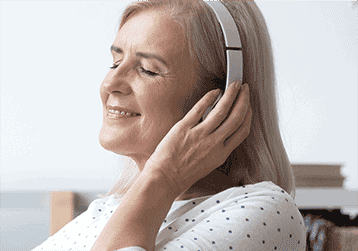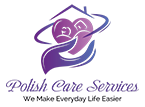
Elderly Care: The Power of Music and Movement
October 24th, 2025Caregiver Agency, Elderly Care, music for seniors,
As people age, the need for holistic care that nurtures both body and mind becomes increasingly important. Music and movement, two seemingly simple activities, have been shown to offer a range of physical, emotional, and cognitive benefits for older adults. From boosting mood and improving mobility to enhancing social interaction, music and movement can serve as essential tools in elderly care, fostering a sense of well-being and independence.
In this article, we explore the significant benefits that music and movement can bring to elderly care, outlining the science behind these benefits and offering practical ways to incorporate them into the daily routine of seniors.
1. Physical Health Benefits of Music and Movement
As aging brings about a variety of physical challenges—such as reduced mobility, joint stiffness, and decreased muscle strength—music and movement can play a vital role in improving physical health. Engaging in rhythmic exercises or dances to music helps to:
Increase Mobility and Flexibility
Regular movement to music, especially activities like dancing, stretching, and simple exercises, can enhance joint flexibility and range of motion. These activities can help combat stiffness and improve overall mobility, making it easier for elderly individuals to perform daily tasks.
For example, studies have shown that movement to rhythm, whether through seated exercises or standing dance routines, helps improve coordination and balance. This is particularly important for elderly individuals who may be at risk of falls.
Enhance Cardiovascular Health
Music can help motivate seniors to engage in physical exercise, such as walking or aerobic dancing. The rhythmic beats encourage a steady pace, while the fun and enjoyable nature of music often helps participants work out longer without feeling fatigued.
Research has demonstrated that listening to music during physical activity can lower heart rates and reduce blood pressure, which contributes to better cardiovascular health.
Promote Strength and Endurance
Movement exercises that incorporate music help seniors maintain and even build strength. For example, walking to a rhythmic beat or doing chair exercises can engage muscles in a gentle yet effective way. In a supportive environment, seniors are often encouraged to work at their own pace, which helps prevent injury while still challenging the body to build endurance.
2. Emotional and Psychological Benefits
Music has long been recognized for its emotional and psychological impact. When combined with movement, it can provide a powerful outlet for expression, connection, and emotional healing.
Reduce Stress and Anxiety
The soothing effects of music are well-documented. Studies have found that listening to calming music can lower cortisol levels, the hormone responsible for stress, in both younger and older adults. When seniors engage in movement with music, they are not only improving their physical well-being but also lowering anxiety and stress levels.
For seniors who experience loneliness or depression, music and movement offer a way to reduce feelings of isolation. Group music and movement sessions—whether it’s a dance class, a singing group, or a seated exercise group—foster social interaction, which is crucial for emotional health.
Boost Mood and Fight Depression
Music can trigger the release of endorphins, the brain’s “feel-good” chemicals. When seniors participate in music-based activities, such as group singing or dancing, their mood can significantly improve, promoting a sense of joy and well-being. This is particularly beneficial for seniors suffering from depression or those who experience mood fluctuations due to chronic illness or dementia.
Music has also been shown to decrease symptoms of depression by encouraging positive reminiscence. Many older adults have fond memories of songs from their youth, and hearing familiar tunes can evoke pleasant memories and a sense of nostalgia, improving overall emotional health.
Enhance Social Interaction
Group music and movement activities provide an excellent opportunity for seniors to socialize. Whether it’s a group singing session or a partner dance routine, these activities encourage communication, cooperation, and camaraderie. Social connections are vital for elderly individuals, as they can reduce feelings of loneliness and enhance overall life satisfaction.
Moreover, music has a universal quality that transcends barriers like language and cognitive impairments, allowing individuals with dementia or Alzheimer’s to engage with others and participate in meaningful ways.
3. Cognitive and Mental Benefits
In addition to physical and emotional benefits, music and movement play a crucial role in maintaining cognitive health. The brain’s response to music and rhythmic movement can enhance memory, focus, and overall mental acuity.
Improve Cognitive Function and Memory
For seniors, particularly those experiencing early stages of dementia or Alzheimer’s disease, music-based activities can help preserve cognitive function. Rhythmic activities, such as playing an instrument or clapping to a beat, stimulate different parts of the brain involved in memory and learning.
Studies have shown that engaging in musical activities, especially ones that require active participation (e.g., singing, drumming, or dancing), can improve short-term memory, attention span, and problem-solving abilities. For seniors with dementia, music often sparks recollections of past events, helping them feel more connected to their personal history.
Stimulate Brain Activity and Neuroplasticity
Music stimulates multiple areas of the brain, including those responsible for emotions, memory, and motor control. When combined with physical movement, the brain is challenged to engage in both mental and physical processes simultaneously, promoting neuroplasticity—the brain’s ability to form new neural connections. This can be particularly beneficial for seniors experiencing age-related cognitive decline.
A 2013 study found that elderly individuals who participated in music therapy showed increased brain activity and improved cognitive function compared to those who did not engage in musical activities. The rhythm and melody of music activate regions of the brain that support learning, which can help seniors retain information and enhance cognitive performance.
Support Focus and Attention
Music and movement activities can also help seniors improve their focus and attention. The structure provided by rhythmic patterns helps seniors stay engaged and aware of their surroundings, which is particularly helpful for individuals with cognitive challenges. By concentrating on the rhythm and movement, seniors can maintain mental clarity and sharpen their attention span.
4. Incorporating Music and Movement into Elderly Care
Given the numerous benefits, incorporating music and movement into the daily routine of elderly individuals can be a transformative practice. Here are some practical ideas to include music and movement in elderly care:
Group Dance Classes or Chair Aerobics
For elderly individuals with varying mobility levels, chair aerobics is an excellent way to engage in movement to music without strain. These classes typically focus on upper body movements, stretching, and gentle aerobics, all set to rhythm. Group dance classes, including styles like ballroom or line dancing, provide an opportunity for seniors to enjoy physical activity while socializing with others.
Music Therapy Sessions
Music therapy, led by a trained therapist, can be an enriching experience for elderly individuals, particularly those with dementia or Alzheimer’s. Music therapists use songs and instruments to evoke memories, improve communication, and foster emotional well-being. These sessions are often tailored to the individual’s preferences and needs, ensuring a personalized approach to care.
Personalized Playlists for Relaxation or Stimulation
Creating personalized playlists of favorite music for seniors can be an effective way to enhance daily routines. Whether it’s playing calming music to help with relaxation or more upbeat tunes to motivate movement, music can be a powerful tool for enhancing quality of life.
Active Listening and Group Singing
Encouraging seniors to participate in group singing, whether in a choir or casual gathering, can create a sense of community while boosting mood. Active listening to music can also be beneficial—helping seniors mentally engage with familiar tunes or rhythms in a relaxed environment.
Conclusion
Music and movement offer a myriad of benefits for elderly individuals, impacting everything from physical health to emotional and cognitive well-being. By integrating these activities into elderly care routines, caregivers can significantly improve the quality of life for seniors, providing them with opportunities to stay active, socially engaged, and mentally stimulated.
Whether through group activities, personalized playlists, or music therapy sessions, music and movement can serve as valuable tools for enhancing the overall well-being of elderly individuals, fostering independence, and nurturing a sense of joy in their daily lives.
Credit: Melissa Bryant for Polish Care Services a Caregiver agency for seniors

The Benefits of Music for Seniors: Elevating Polish Care Services
September 23rd, 2025In Home Care, music for seniors, Polish Care Services, Seniors,
Keywords: Music therapy for elderly, benefits of music for seniors, Polish care services, cognitive health and music, emotional well-being for elderly
As we age, maintaining both cognitive function and emotional well-being becomes increasingly essential. For many elderly individuals, music serves as a powerful tool to enhance their quality of life. Polish care services are increasingly endorsing music therapy to improve the physical, emotional, and cognitive health of their clients. In this article, we delve into the numerous benefits of music for seniors and how it can enhance care services tailored for the elderly.
- Music Therapy for Elderly: A Brief Overview
Music therapy is a clinical and evidence-based approach that uses music interventions to help achieve individualized goals. This form of therapy can be particularly effective for the elderly, addressing physical, emotional, cognitive, and social needs. Specialized care services recognize the importance of music therapy as an integral component of comprehensive elder care, allowing caregivers to foster connections and enhance the lives of their clients.
- Cognitive Health and Music: Keeping the Mind Active
One of the significant benefits of music for seniors is its impact on cognitive health. Studies have shown that engaging with music can stimulate brain activity, potentially slowing down the progression of dementia and Alzheimer’s disease. Listening to familiar tunes can trigger memories and enhance recall, providing comfort and a sense of identity to elderly individuals.
Polish care services staff often implement music sessions where clients can enjoy live performances or listen to personalized playlists. This practice not only promotes engagement but also encourages socialization among seniors, helping them to bond over shared musical interests and memories.
- Emotional Well-Being for Elderly: Alleviating Depression and Anxiety
Many elderly individuals experience feelings of loneliness, depression, and anxiety. Music has been proven to elevate mood and evoke positive emotions, making it a valuable tool for enhancing emotional well-being. For seniors living in care facilities, music can break the monotony of daily routines and provide joy in their lives.
Polish care services can incorporate various musical activities, such as sing-alongs, drumming circles, or dance. These activities foster a sense of belonging and community, which is vital for emotional health. Participating in music-related activities can also help seniors express their feelings in a safe and productive environment, reducing isolation and enhancing overall happiness.
- Music and Physical Health: A Rhythmic Solution
The benefits of music for seniors extend beyond mental and emotional wellness; it can also contribute to physical health. Engaging in musical activities, such as dancing or playing instruments, can improve motor skills and coordination. For seniors with mobility challenges, simply tapping along to the beat can provide an opportunity for physical movement without overwhelming exertion.
Furthermore, music can positively affect physiological responses. Studies show that listening to calming music can lower blood pressure, reduce heart rate, and decrease stress levels—essential factors in maintaining overall health as we age. Polish care services are increasingly incorporating these elements into their daily routines, making music a cornerstone of therapy for physical well-being.
- Enhancing Social Connections Through Music
Social interaction is vital for the elderly, who may often feel isolated. Music brings people together in unique and powerful ways, bridging generational divides and fostering friendships. Polish care services can utilize music to create community events, such as concerts or themed music nights, where seniors can connect, share experiences, and create lasting memories.
Group music activities also provide a platform for seniors to interact and collaborate, enhancing their social skills and confidence. Whether it’s playing in a band, singing in a choir, or just enjoying music together, the power of shared musical experiences can assist in building lasting relationships and communal bonds among seniors.
- Tailoring Music Therapy to Individual Needs
One of the most significant advantages of incorporating music into care services is the ability to tailor interventions to meet each individual’s unique preferences and needs. Polish care services can conduct assessments to determine the types of music that resonate with each client. Personalizing music choices based on an individual’s background, culture, and experiences can maximize the therapeutic benefits.
As caregivers become more attuned to the musical likes and dislikes of their clients, they can create meaningful experiences that not only entertain but also enrich lives. Personalized playlists, organized music groups, and individual music therapy sessions can all be part of a care plan designed to promote well-being comprehensively.
- Conclusion: The Harmonious Future of Polish Care Services
The integration of music into Polish care services staff and client daily routing is a promising development in elderly care. The benefits of music for seniors are profound, spanning improved cognitive health, emotional well-being, enhanced physical abilities, and stronger social connections. As more care facilities embrace these therapies, we can expect to see a notable improvement in the quality of life for elderly individuals.
In conclusion, music is not just a source of entertainment; it is a therapeutic aid that can play a pivotal role in enhancing the care experience for seniors. By recognizing and utilizing the profound benefits of music, Polish care services can create a vibrant, uplifting environment, or a classical mellow environment where elderly individuals thrive.
As we move forward, it is essential for caregivers and family members to advocate for the incorporation of music in everyday care practices. Together, we can help the elderly enjoy a fuller, richer, and more joyful life through the incredible power of music.
